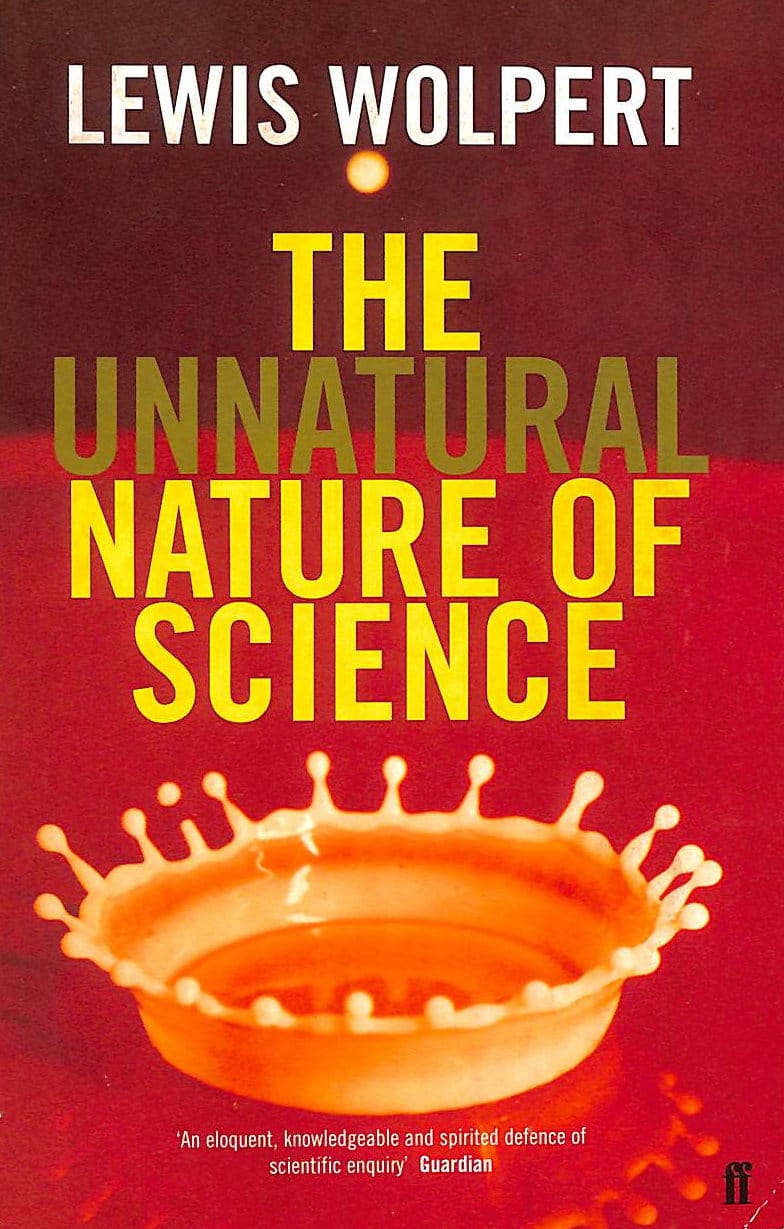Why Do Scientists Do Science?
An article on Lewis Wolpert's 'The Unnatural Nature of Science'

The Unnatural Nature of Science
Author Lewis Wolpert
Why do scientists do science? Are they self-interested people seeking to print their names into history books, or are they selfless heroes hoping to better the world without seeking rewards?
why should some of us still aim to be scientists, when the rewards seem few and far between?
At Imperial, many of us will choose the career of ‘scientist’. From what we learned as young children, scientists from Galileo seeking to understand the rules of gravity to Darwin trying to explain the evolution of species are always portrayed as being at the frontiers of humankind’s progress. But as we step into this field and follow in the footsteps of those scientific giants, we will gradually realise this seldom-mentioned fact: “science is a largely anonymous process”. As stated in the book, few scientists will be recognised for their work, and only a limited proportion of those few notable scientists will continue to be remembered over generations. We will also gradually realise the unfair fact that scientists generally don’t earn much money, which partly explains why so many potential physicists, chemists, and biologists eventually choose to be bankers. So why should some of us still aim to be scientists, when the rewards seem few and far between?
The book starts with the comparison between “common sense” and scientific thinking, of which the latter is often considered “counter-intuitive and unexpected” for non-trained minds; an example being “the natural state for an object is to move at a constant speed—not, as most of us think, to be stationary”. The opening chapter introduces one of the most interesting questions in the book: why don’t common people understand science?
It’s interesting to see the author argue that most “useful” tasks in our daily life do not need knowledge of science - riding a bike, for example, doesn’t require understanding of Newton’s Laws.
Scientists have to balance intense competition with the need for cooperation
The following chapters introduced some even more interesting topics. In Technology is not Science and Thales’s Leap: West and East, the author explains why science emerged in Europe not in other civilisations. The discussion in these two chapters reminds me of a book called Science, the Endless Frontier by Vannevar Bush; a collection of letters presented to US President Franklin D. Roosevelt that is believed to lay the foundation for the prosperity of science in America after World War II. One of the main themes of the letters is the distinction between technology and science, and the call for stronger support of basic research. The difference in emphasis on science and technology from country to country underlies the disparities in scientific development from historical times up to present day. Technology, such as the development of such products as cell phones, air-conditioners, and cars, often has a direct impact on people’s lives, while science seemingly has nothing to do with daily life: for example, the identification of an important protein that connects endoplasmic reticulum to the plasma membrane of Arabidopsis thaliana under biotic stress seems to have no connection with agriculture. That’s why many societies value technology over science, which often requires a huge amount of investment while seldom catering to real practical needs. But, as this book points out, great leaps in technology often rely on the gradual accumulation of scientific knowledge.
Later chapters of the book focus on elements of science such as creativity, competition, cooperation, and philosophy. It’s interesting to find out that even accomplished scientists, such as Nobel Laureate Dr Roger Wolcott Sperry, must contest so hard to get papers published ahead of others in their field, and how scientists have to balance intense competition with the need for cooperation. This book serves as a valuable reference point for a scientists’ life for people seeking a career in science.
The narrative style of the book is highly critical. Though countless quotations from exceptional scientists and philosophers were cited, few survived the fierce attacks of the author. It may seem that the author’s ideas are incompatible and at odds with each other, but through reading the ceaseless arguments, the reader will gradually understand the critical nature of science and subconsciously try to refute the author in the way the author criticises other people. I believe this to be one of the aims the author hoped readers to achieve through reading this book.
Even for non-scientists, reading the book will help to correct their misunderstandings of science and inspire them to think more scientifically. Readers will be surprised to discover how headlines may mislead the public, and how unsubstantiated data can be arbitrarily interpreted in ways that influence our lives, especially in cases such as the COVID-19 pandemic.
“Science can be quite uncomfortable to live with – at least for some people. It offers no hope for an afterlife, it tolerates no magic, and it doesn’t tell us how to live. But there is no good reason to believe…that scientific understanding creates a ‘dry and sterile world’ by apparently removing all mystery…and science itself can be very beautiful.” - Lewis Wolpert









